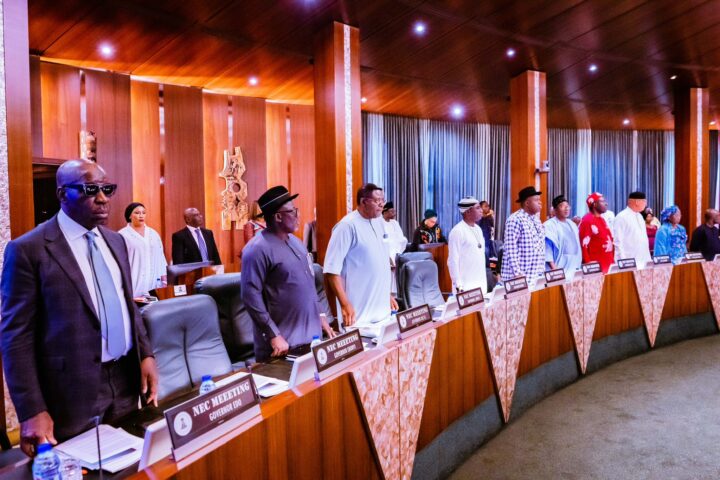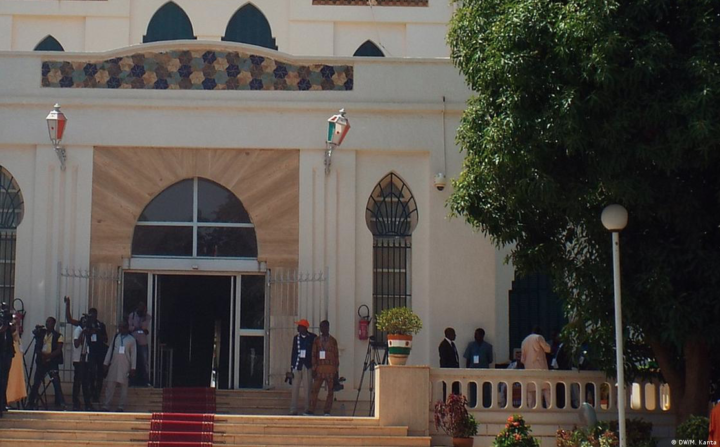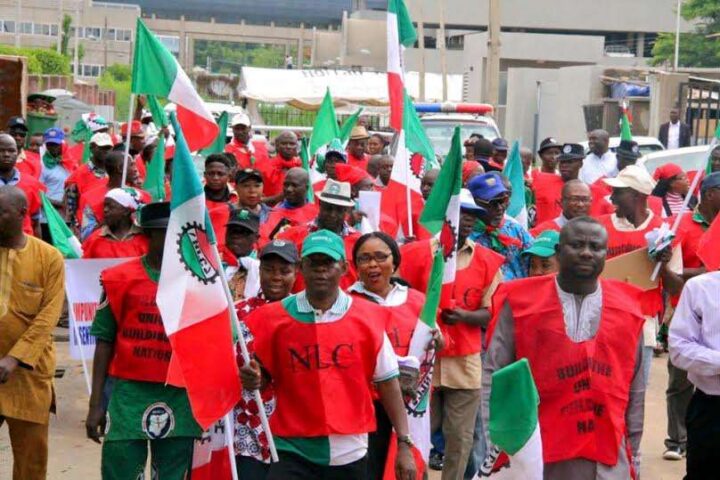On May 29, President Bola Tinubu, while delivering his inaugural speech, announced the end of the petrol subsidy regime.
The removal of the subsidy on petrol immediately led to a hike in the pump price of the product, with attendant food inflation, soaring transportation costs and rising cost of living.
Recently, the pump price of petrol rose from an average of N500 per litre to N617 per litre at some dispensing stations.
Some states have taken measures to mitigate the effect on workers.
Advertisement
Some of the measures include cash transfer programmes, provision of mass transit buses at reduced costs, as well as payment of outstanding liabilities of public servants, including pensioners.
In June, the Kwara government directed the reduction of workdays from five to three to cushion the high transportation cost on public servants.
However, the directive was later suspended due to “an advisory from the national economic council (NEC)”.
Advertisement
On July 24, Abdulrahman Abdulrazaq, the governor, approved a cash support of N10,000 for every public servant in the state, beginning from July.
Abdulrazaq said the cash support would last till a new minimum wage is introduced.
The governor also approved the payment of new hazard and skipping allowances, and “100 percent CONMESS for consultants and medical doctors under our government’s payroll”.
He also said modalities for occasional distribution of food to poor and most vulnerable households would be activated.
Advertisement
EDO
Just like Kwara, the Edo state government, on June 6, reduced work days for its civil servants from five to three.
Godwin Obaseki, the governor, also said the state is working on deepening EdoBEST@Home initiative to create more virtual classes in order to reduce the cost of commuting by parents, teachers and pupils to schools.
On the rising cost of energy, Obaseki said the state will work with electricity companies to improve power supply to homes and businesses.
The governor also assured workers that the government will continue to pay N40,000 as minimum wage and hope to increase the amount.
Advertisement
OYO
In a bid to ease the burden on residents, Seyi Makinde, Oyo governor, directed the deployment of more “Omituntun buses” (the state mass transit buses) to ease transportation cost.
Makinde also directed that the bus fare should not be increased for residents, and that school children and senior citizens should be allowed to board the buses at half the prices.
Advertisement
The governor also said a committee has been set up “to look into what we can do about increasing salaries of civil servants”.
OGUN
To make life easy for residents, the Ogun government announced the payment of N10,000 cash palliative to all civil servants in the state.
Advertisement
Pensioners are also included in the plan which takes effect from July, for three months.
Dapo Abiodun, the governor, also approved the payment of hazard allowance for all health and medical personnel in the state as well as peculiar allowance for civil servants.
Advertisement
Other palliative measures rolled out by the governor include the commencement of food distribution to the vulnerable (rice, garri, beans, maize etc); and distribution of fertilisers and other farm inputs to farmers at subsidised and controlled prices.
Others are payment of March and April 2023 leave bonuses for public servants and the immediate release of letters of promotion in respect of 2021 and 2022.
OSUN AND ONDO WORKING ON PALLIATIVES
Other states that have announced plans to provide relief packages for residents include Osun and Ondo states.
On June 30, Ademola Adeleke, governor of Osun, said his government is making plans to provide palliatives for residents of the state.
He said his government will introduce public transport buses for residents. He also said the government is working to adjust work hours and days.
On its part, the Ondo state executive council constituted a nine-man committee to work out strategies to cushion the effects of petrol subsidy removal.
Add a comment






